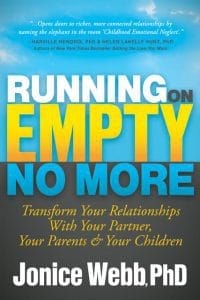Or… make that Happy Holidays to 60% of us; but to the other 40%, maybe not so much.
As a psychologist, I sometimes almost cringe when I experience the mass media’s description of the holidays as happy and jolly. That’s because in my field, I get a true glimpse of what is really happening behind the scenes during the winter holiday season. And what I see is a significant amount of anxiety, stress and discomfort around holiday family gatherings.
The more I talked about this subject with my clients, and many others, over the years, the more curious I became. What exactly causes all of this trepidation about holidays and family? And does it affect as many people as it seems?
So this September, I commissioned an official national poll. I asked over 1,000 randomly selected people specific questions about their exact holiday family experiences, and this is what I found.
Results of the Holiday Poll
- 60% of all people enjoy the holidays with no significant family stress.
- But 40% of us struggle to cope during the time we spend with our families.
- The source of family stress is not our spouses and children, who actually provide us solace. The actual stress comes from spending time with our parents, siblings, and extended family.
- For 20% of all people — that’s one out of every 5 — the cause of that family stress comes from secretly feeling that we are required to act like everything is great in our lives, even when it is not.
Of course there are an infinite number of reasons why a person may feel uncomfortable with his parents and siblings at the holidays. But why do so many feel pressure to act like everything in their lives is great?
In my experience as a psychologist, I believe the best explanation for the 40% and the 20% is an overlooked, seldom obvious, little-talked-about factor called Childhood Emotional Neglect (or CEN)
Childhood Emotional Neglect is rampant in today’s world. It lurks quietly in many families, making their members feel uncomfortable and out of place, unimportant, or inexplicably alone, when they are together. CEN happens when a family does not notice or attend to the emotions of its members enough. And it delivers a powerful, subliminal message: “We do not care what you feel.”
When you grow up receiving this subliminal message from your family, and continue to receive it at family gatherings as an adult, you are placed in a difficult position. You must hide all the parts of yourself and your life that might make the others feel uncomfortable. You must hide how you feel, what you need, and what you are struggling with. In essence, you must squelch your true self.
It is hard to feel comfortable and happy when you are caught in such a bind, but fortunately there are answers to this dilemma. There are things you can do to take matters into your own hands at your next holiday family gathering.
What To Do
- Break some family rules. We all tend to go through family events almost robotically, following the traditions and rules, never thinking about ourselves and our own needs. So before this year’s event, think about what it would take to feel more at ease and enjoy it more, even if it means breaking family expectations or rules. For example, if you need to leave early, stick with your partner, or hang out with the children, do it.
- Change how you interact. Make it a point to have a real conversation with someone this year. “Real” means emotionally connected. Share a struggle you are going through (everyone has something); connect with someone with whom you wouldn’t normally talk. Or make a point to talk with the least accepted member of the family. All of these small changes alter the family dynamic only slightly, but in a very important way.
- Pay attention to what you’re feeling while you are there. This step is key, as it directly violates the mandate of the emotionally neglectful family. And it is a tremendous contributor to your emotional growth and health. Try to identify at least 3 feelings you have during the gathering. They may be completely contradictory, or all very similar, or perhaps you will feel nothing. But the important thing is that you pay attention.
The Added Benefits
Whether you are part of the 60% or the 40%, you can significantly improve your experience of the holidays by following these 3 steps. And there is an added bonus. In the process, you will also alter the experience of the other members of your family.
By paying attention to your own needs and feelings, you may find yourself more present with your family. By having a meaningful conversation with someone, you may find yourself feeling more like you belong there.
By quietly breaking some unspoken family rules in a healthy way, you can send an important message to your family and yourself: No more squelching, and no more struggling. I care what I feel, and I care what you feel. It matters.
Childhood Emotional Neglect (CEN) can be very subtle and unmemorable, so it can be difficult to know if you have it. To find out, Take The Emotional Neglect Test. It’s free.
 Dr. Jonice Webb has a Ph.D. in psychology, which she has been practicing since 1991. Her new book, Running on Empty No More (Morgan James Publishing, Nov. 7, 2017) focuses on healing relationships that were affected by Childhood Emotional Neglect (CEN), and follows her best-selling book, Running on Empty, for people who suffer from the effects of CEN. Webb specializes in dealing with CEN and has been interviewed about CEN on NPR and more than 30 different podcasts and radio shows. She also writes a blog for PsychCentral.com about Childhood Emotional Neglect, and created Fuel Up For Life, an online CEN Recovery Program. Learn more at drjonicewebb.com.
Dr. Jonice Webb has a Ph.D. in psychology, which she has been practicing since 1991. Her new book, Running on Empty No More (Morgan James Publishing, Nov. 7, 2017) focuses on healing relationships that were affected by Childhood Emotional Neglect (CEN), and follows her best-selling book, Running on Empty, for people who suffer from the effects of CEN. Webb specializes in dealing with CEN and has been interviewed about CEN on NPR and more than 30 different podcasts and radio shows. She also writes a blog for PsychCentral.com about Childhood Emotional Neglect, and created Fuel Up For Life, an online CEN Recovery Program. Learn more at drjonicewebb.com.






